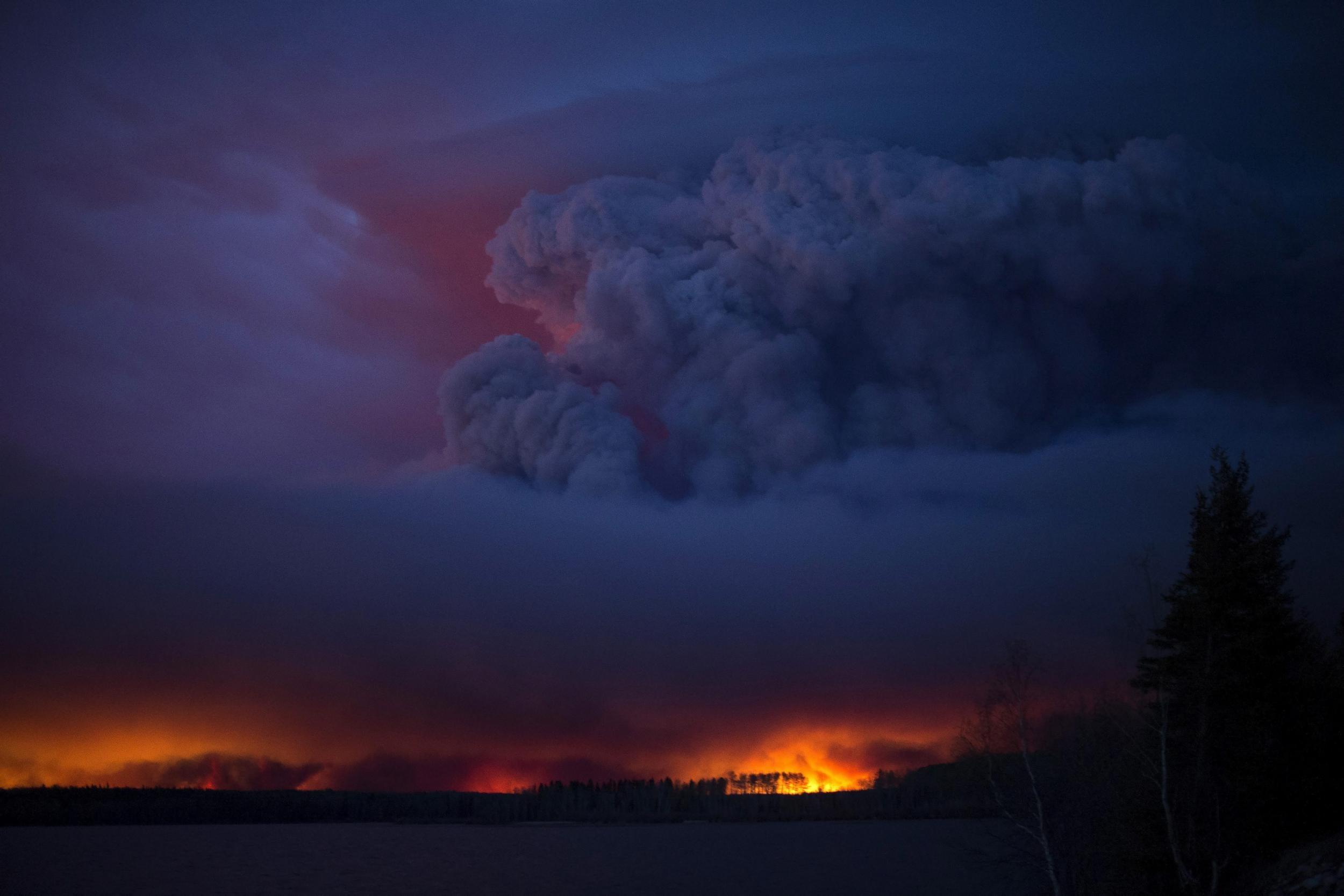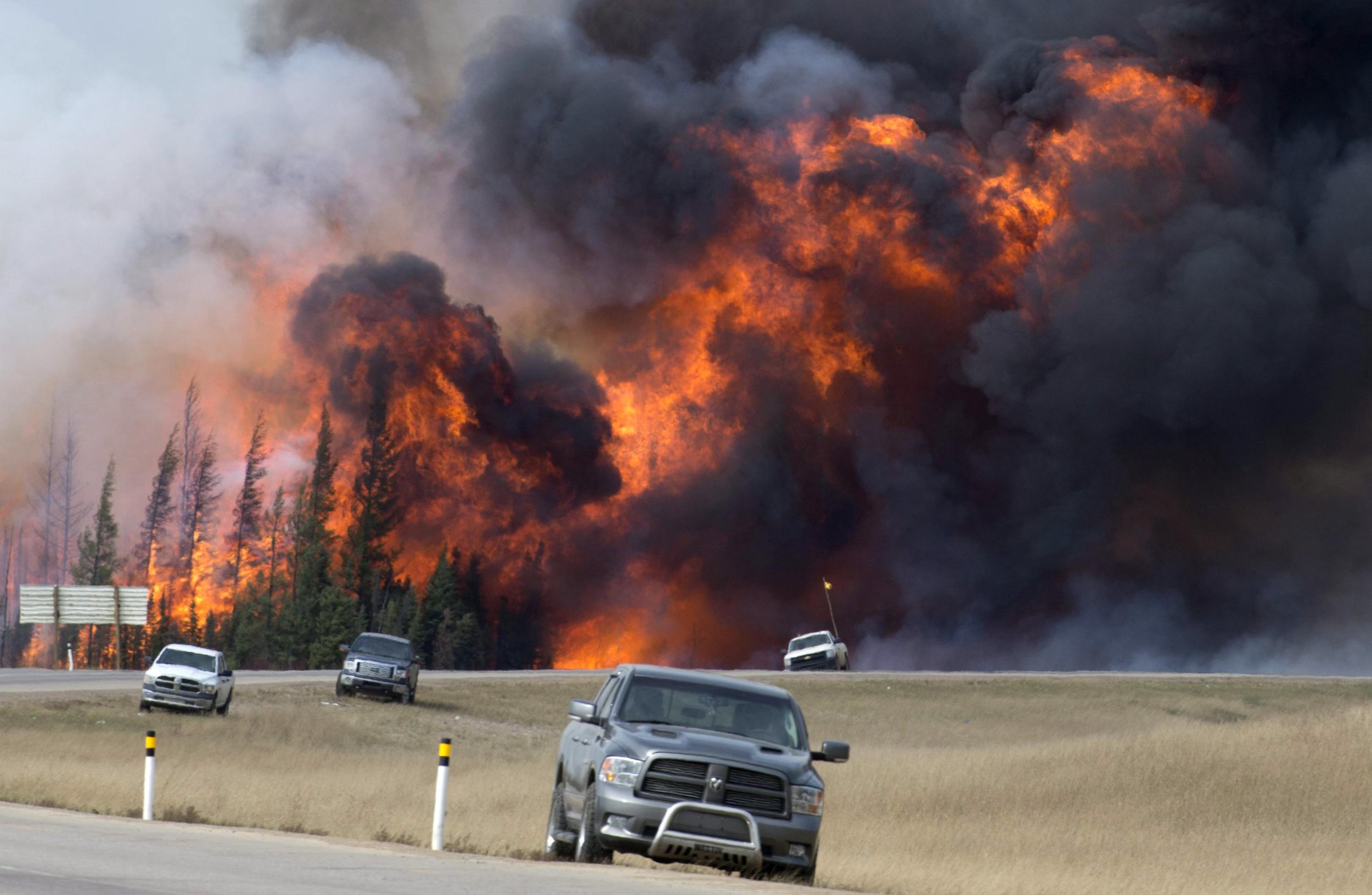Canada wildfires in Alberta expected to burn for months
'In no way is this fire under control,' says Alberta premier Rachel Notley
Your support helps us to tell the story
From reproductive rights to climate change to Big Tech, The Independent is on the ground when the story is developing. Whether it's investigating the financials of Elon Musk's pro-Trump PAC or producing our latest documentary, 'The A Word', which shines a light on the American women fighting for reproductive rights, we know how important it is to parse out the facts from the messaging.
At such a critical moment in US history, we need reporters on the ground. Your donation allows us to keep sending journalists to speak to both sides of the story.
The Independent is trusted by Americans across the entire political spectrum. And unlike many other quality news outlets, we choose not to lock Americans out of our reporting and analysis with paywalls. We believe quality journalism should be available to everyone, paid for by those who can afford it.
Your support makes all the difference.Canadian officials say they expect to fight the massive wildfire that has destroyed large parts of Alberta's oil sands city of Fort McMurray for months.
And there is fear that the growing wildfire could double in size, reach a major oil sands mine - and even the neighbouring province of Saskatchewan.
The Alberta government said the massive blaze in the province would cover more than 494,211 acres by Sunday - around the size of Greater London. They warned it will continue to grow because of high temperatures, dry conditions and high winds.
Chad Morrison of Alberta Wildfires said it was not uncommon to fight such an inferno in forested areas for months.
"In no way is this fire under control," Alberta premier Rachel Notley said.
Officials had hoped to complete the mass evacuation of work camps north of Fort McMurray on Saturday. Thousands of displaced residents got a drive-by view of some of the burned-out neighbourhoods as convoys continued. No deaths or injuries have been reported since the fire started last Sunday.

Ms Notley said about 12,000 evacuees have been airlifted from oil sands mine air fields over the past two days, and about 7,000 left in highway convoys escorted by police. She said the goal was to complete the evacuation from northern work camps by Sunday.
The fire could reach the edges of the Suncor oil sands facility, about 15 miles north of Fort McMurray. Non-essential staff have been evacuating and efforts to protect the site were under way.
Ms Notley, however, said that the plant was highly resilient to forest fires. Oil sands mines are cleared and have no vegetation.
Mr Morrison said the fire was not expected to reach the oil sands mines north of Suncor.
The fire and mass evacuation has forced a quarter or more of Canada's oil output offline and was expected to impact an economy already hurt by the fall in the price of oil.

The Alberta oil sands have the third-largest reserves of oil in the world behind Saudi Arabia and Venezuela. Its workers largely live in Fort McMurray where some neighbourhoods have been destroyed.
Police said many parts of smoke-filled Fort McMurray are burnt and visibility is low. Officers wore masks as they checked homes to make sure everyone was out.
More than 80,000 people have left Fort McMurray in the heart of Canada' oil sands, where the fire has torched 1,600 homes and other buildings. Gas has been turned off, the power grid is damaged and water is not drinkable.
Officials say there is no timeline to return residents to the city, but the Alberta government has begun preliminary planning, though it stresses fighting the fire is still the first priority.
About 25,000 evacuees moved north in the hours after Tuesday's mandatory evacuation, where oil sands work camps that usually house employees were used to shelter evacuees. Officials are moving everyone south where it is safer.
Syncrude, a major oil sands mining company, also shut down operations and evacuated. The company said while there was no imminent threat from fire, smoke had reached its Mildred Lake site. They intend to have all staff out this weekend and started the evacuation early on Saturday.
Mr Morrison said the fire was burning away from communities. He said cooler temperatures were expected on Sunday and over the next week.
"We feel that it will hold there if we get some cooler conditions over the next two or three days," he said.

They could get rainfall on Sunday but a significant amount is needed.
The 494,211 acres includes burned areas and those areas still in flames. The fire has destroyed about than 772 miles of northern Alberta forest.
Lac La Biche, normally a sleepy town of 2,500 about 109 miles south of Fort McMurray, was helping thousands of evacuees, providing a place to sleep, food, donated clothes and even shelter for their pets.
Jihad Moghrabi, a spokesman for Lac La Biche County, said 4,400 evacuees came through The Bold Centre, a sports facility in town.
At the centre, tables were piled with clothes, towels and other items. It was offering three free meals a day and other help, including mental health services. A kennel houSed people's pets on site.

Philip Wylie, his wife Suda and 13-month-old daughter Phaedra were among those staying at the centre after evacuating their apartment in Fort McMurray on Tuesday.
"Trees were blowing up against our vehicles," Mr Wylie said of the caravan drive out of town. "We don't know what we're going to go back to, or when we can go back."
Nicole Cormier, a photographer from Fort McMurray, is staying with family in Lac La Biche but brings neighbours that she left with to the centre every day for services
She showed mobile phone photos she shot from her back garden of the advancing fire and photos of flames on the side of the road while they were evacuating.
Ms Cormier said she checks the security doorbell camera on her house several times a day just to see if it is standing. For now, it is.
"It's weird, you feel a big sigh of relief but you feel totally guilty because of what others have lost," she said.
PA

Join our commenting forum
Join thought-provoking conversations, follow other Independent readers and see their replies
Comments